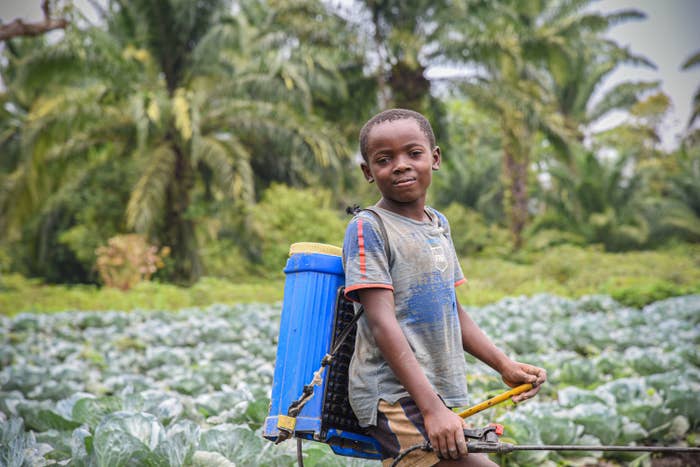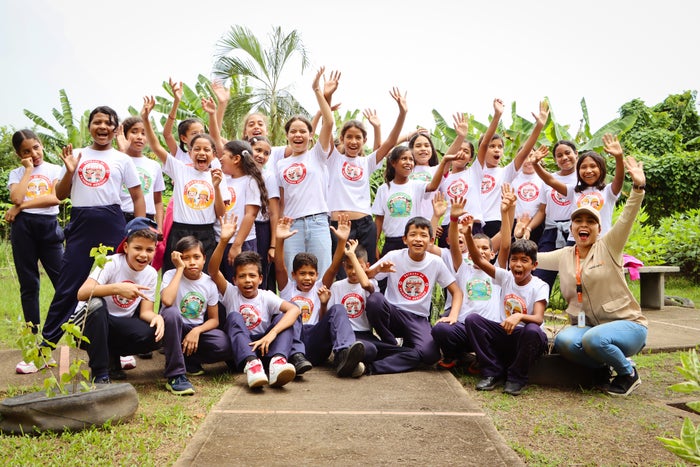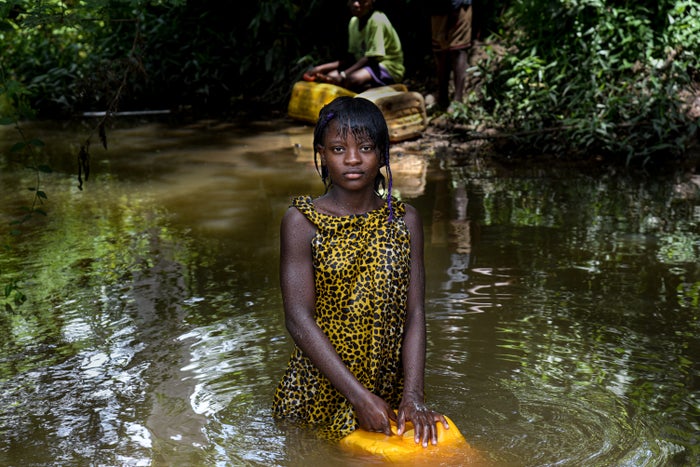You often hear people say, 'You don't know what you don't know'.
Four years ago, Maurice was wise enough to find out — cabbages change lives!
A devoted father and farmer, he was doing all he could to provide for his family, but it wasn't enough.
His traditional crops were struggling with the changing climate, the town's water source was damaged & no longer reliable and his family lived within an area constantly affected by armed groups and conflict.
When World Vision turned up with some crazy ideas for growing cabbages and brewing natural pesticides Maurice said, 'Yes!'
Well, let him take it from here because as he told us... "There's a lot to talk about" :)
Get your cabbages here, and be warned they are HUGE!
Back to Maurice...
"My name is Maurice, and I live and grow cabbage. I started growing cabbage four years ago.
When World Vision arrived, they gave me a boost by teaching me new farming techniques. This contributed a lot to my development.
I have now learnt how to find and mix natural pesticides, how to find a good market to sell and how to make the right choice of land to improve my yield
I was taught how to use available resources such as chillies, tobacco leaves or other plants from which I can produce my pesticide. All these techniques work well and protect the vegetables from pests and even animals.
After the initial sale of our produce, I managed to buy other seeds and have since been able to meet my family's needs.
This means that I always have something to eat at home and the children are always healthy."
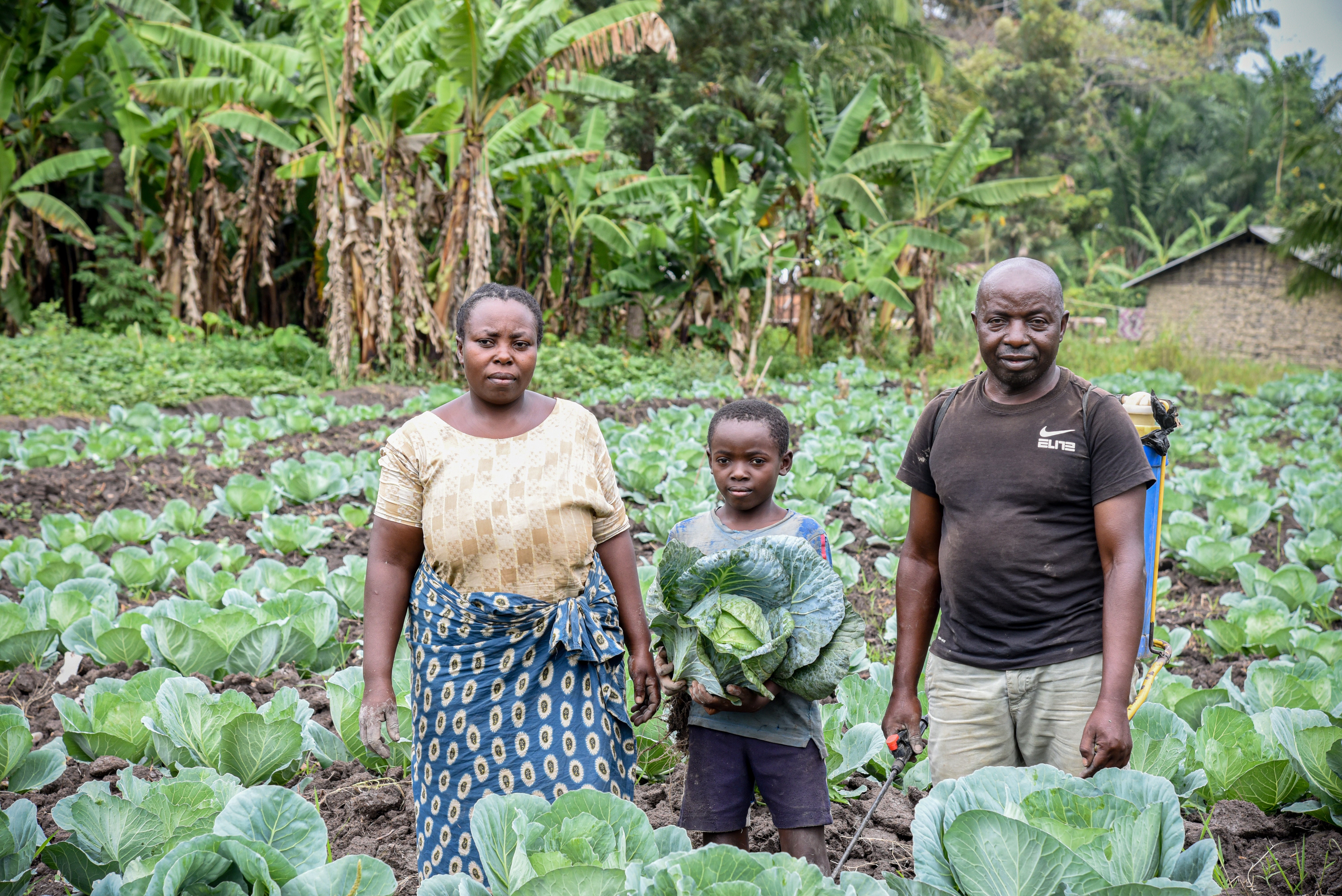
A family of innovators! Maurice and Antionette took a risk that changed the whole community. Here they stand in a field of cabbages, 3420 to be precise.
Rodrigue Harakandi
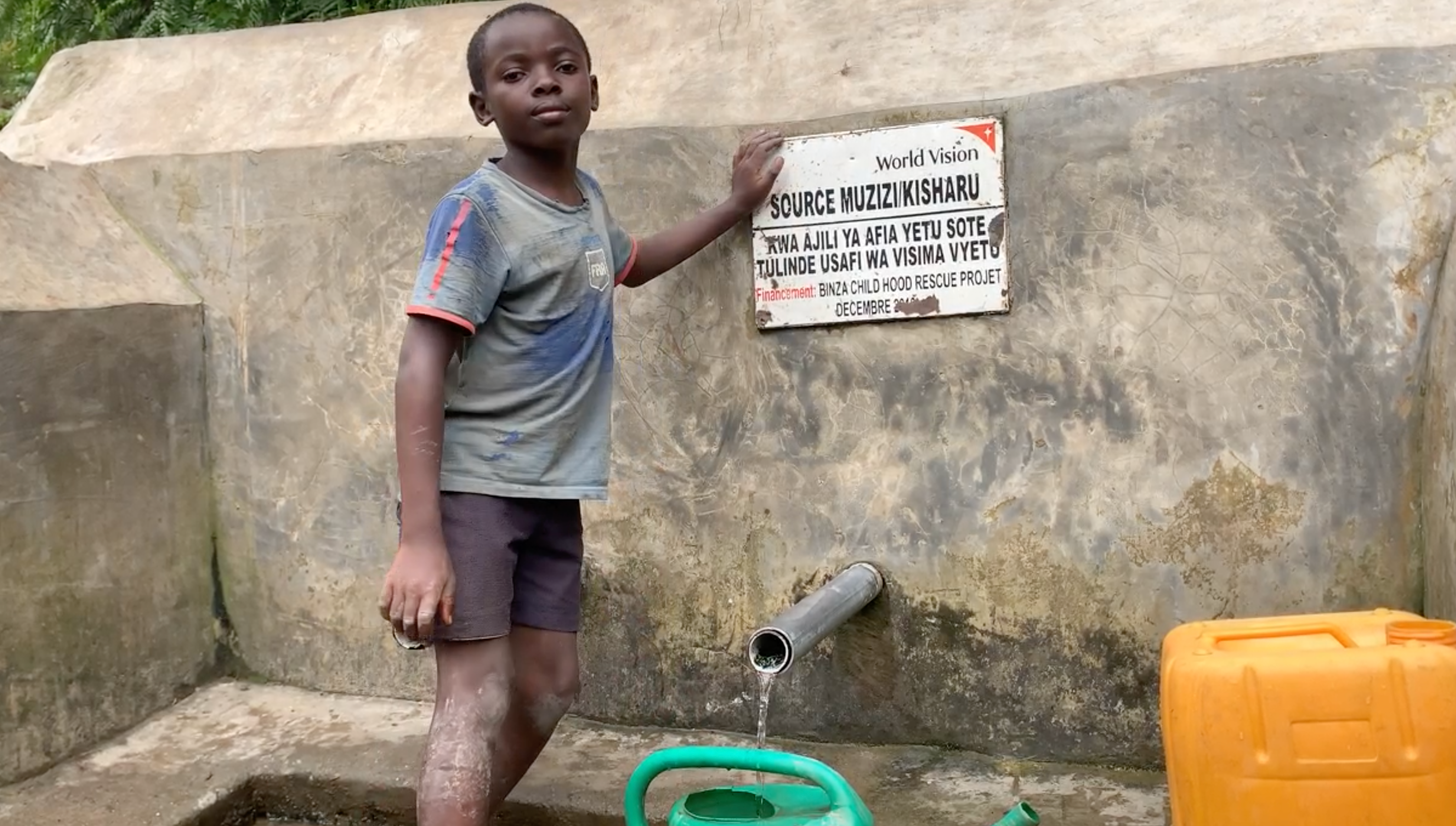
Economa stands by the local spring that World Vision repaired in 2021. This allows the community access to clean water and also to water crops when there is drought. It also provides safety to children and women who no longer need to walk long distances alone, as the spring is located within the community.
Rodrigue Harakandi
"My name is Antoinette and I am Maurice's wife.
Together we are growing cabbage, which has many advantages.
It's a crop that allows me to feed my family and increase my income.
I advise my neighbours to get involved in growing vegetables because I find that growing vegetables pays better than growing traditional food crops.
Another great advantage with crops such as cabbage, is that it doesn't take long to ripen. What's more, it's a crop that doesn't require large tracts of land, which are hard to find here.
This is why I continue to encourage people to grow this crop, which is not customary here, but which has a lot of potential."
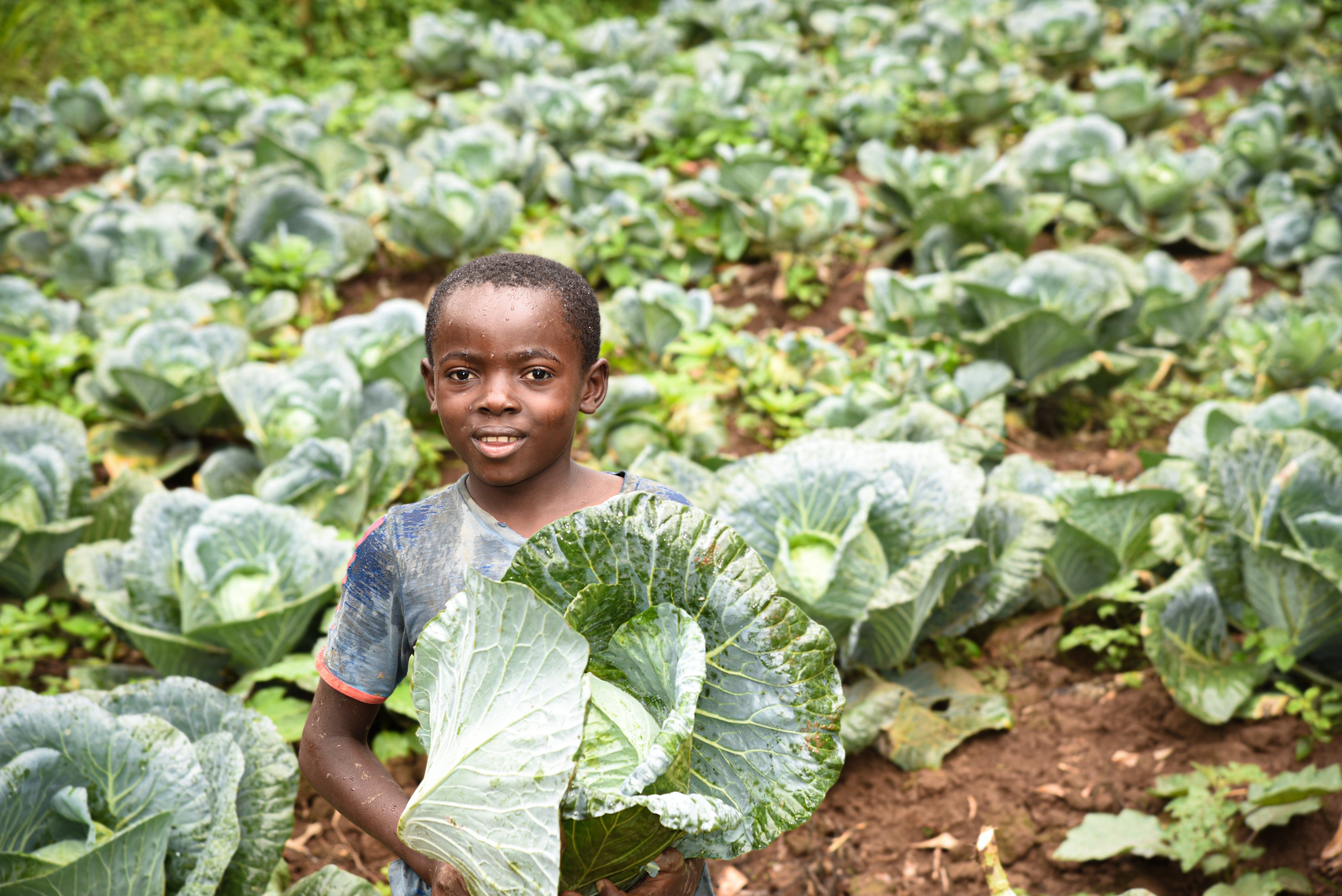
Economa has a dream to become a doctor. He works hard at school and then assists his parents in the fields during the late afternoons. He is very aware that farming and embracing new techniques has helped his parents to provide him with schooling and nutritious food, and one-day cabbages will help send him to study medicine.
Rodrigue Harakandi
"The field you see here contains around 3420 cabbages.
These vegetables are beneficial for my family and my community because today people no longer have to go to Kibumba (more than 80km from the village) to buy vegetables.
They buy their vegetables locally and at a good price, from 500fc (0.25$).
The children benefit fully from the vitamins these vegetables contain and personally, the income enables me to pay for my children's education as well as meeting other basic needs.
When people come to ask for technical advice to start their farming project, I help them. In other words, I don't keep all the training I receive from World Vision for myself.
I do not want to forget to mention, I've learnt a lot about adapting to climate change.
And during droughts, for example, I now get water from a spring rehabilitated by World Vision to water my seedlings.
I share my experience and knowledge so that one day, our village will be a benchmark for vegetable production in the area and that future generations will benefit from our efforts."
What can I do?
Here's three ways for you to go a little deeper - chat, act or share!
- 1
Ask a Question
Got something you don't quite understand? Ask a question and we'll get you an answer direct from our amazing project staff.
Ask Away - 2
Donate
Every gift makes a difference. Our Childhood Rescue fund helps children living in the world’s most dangerous places.
Donate Now - 3
Share on Social Media
Raising awareness is vital. Help make people aware of the situation and the difference we can make, together.
